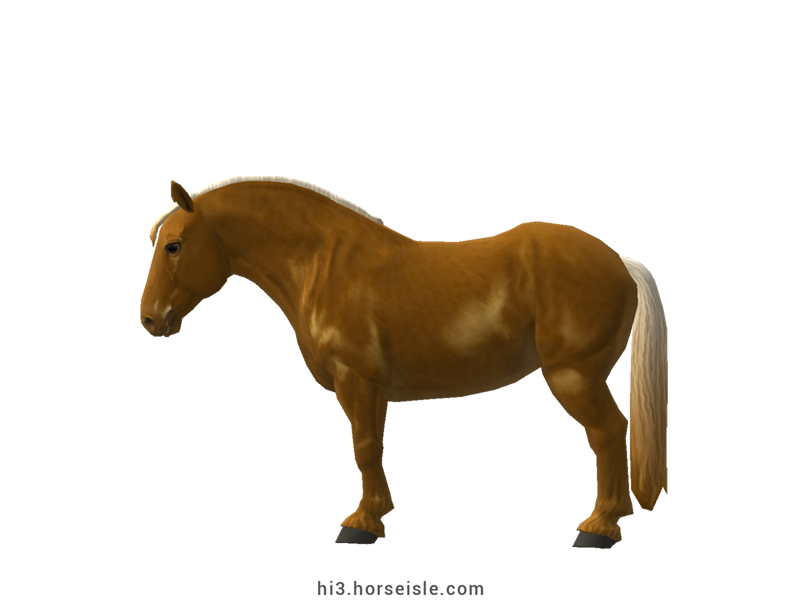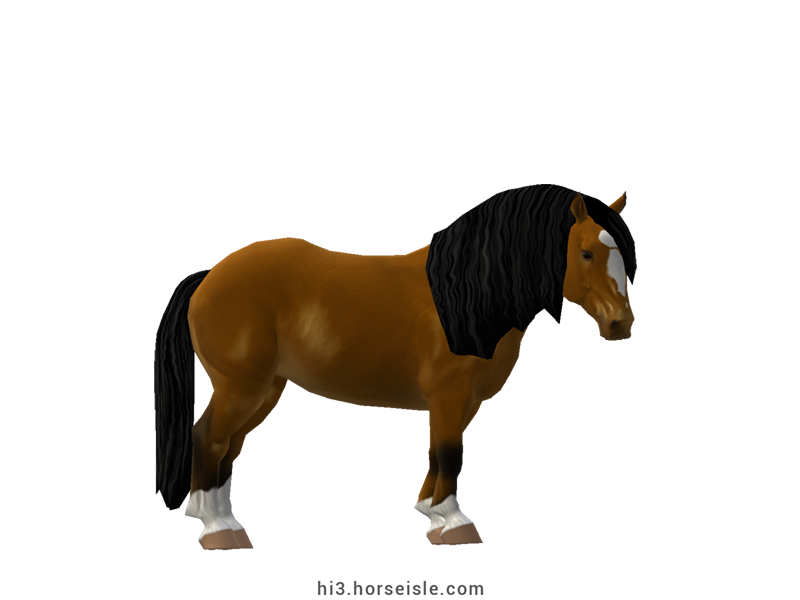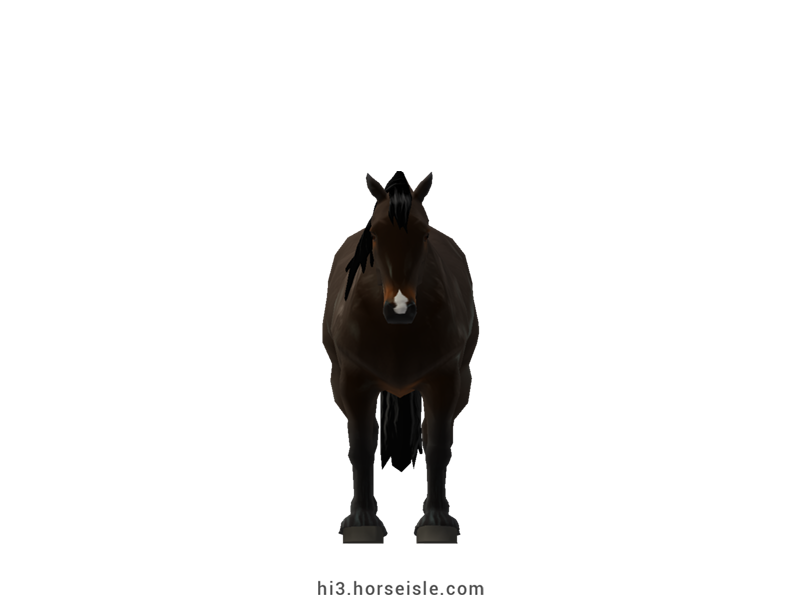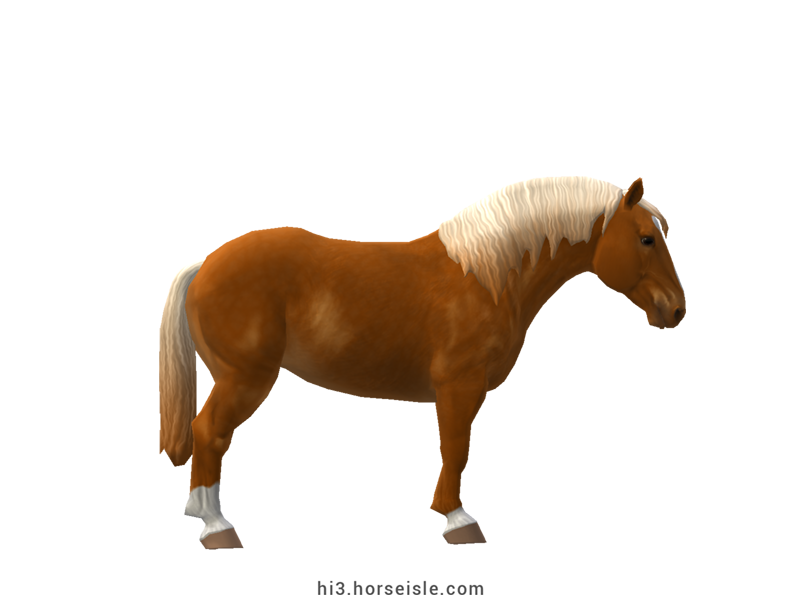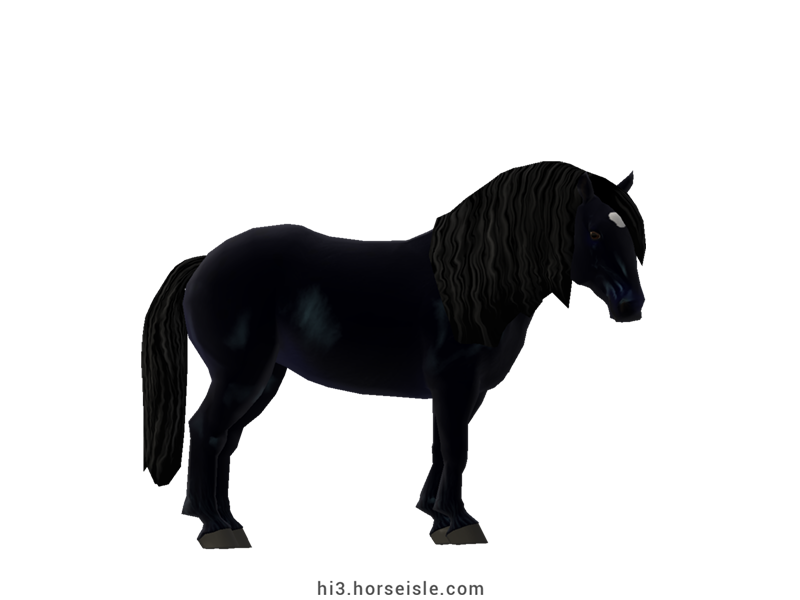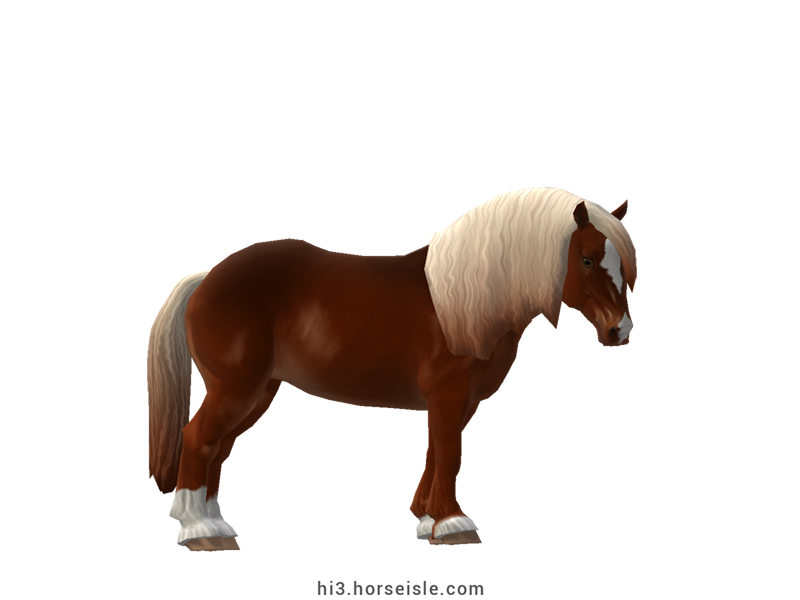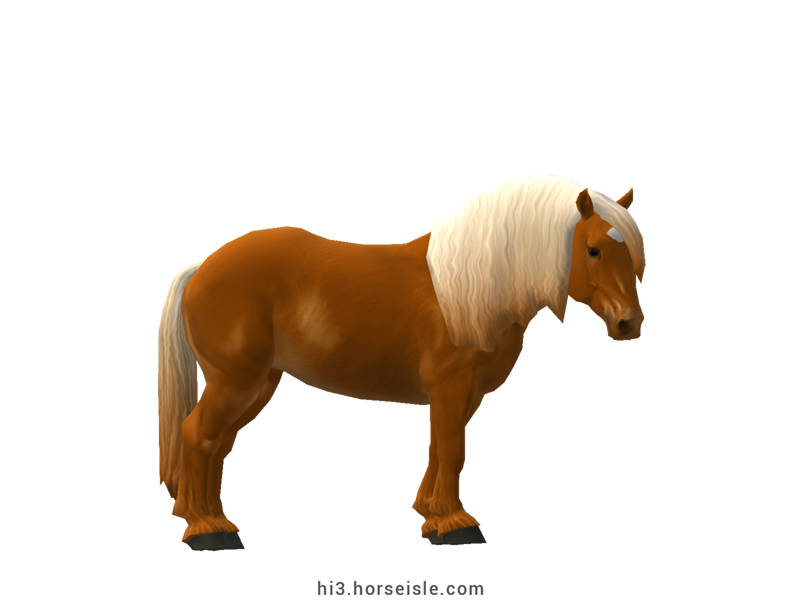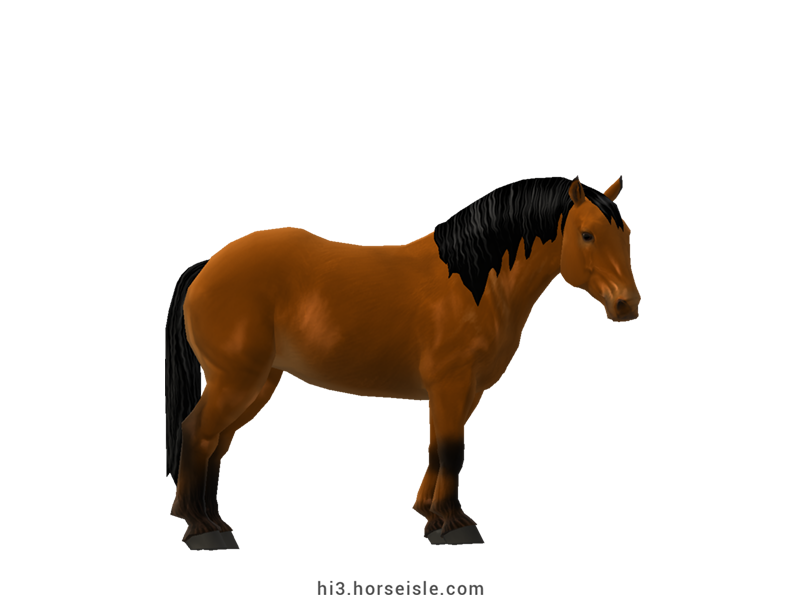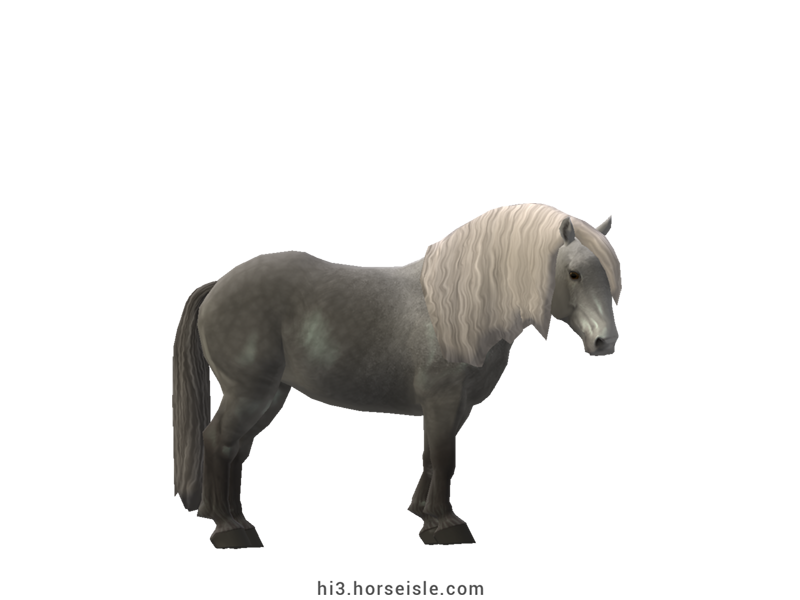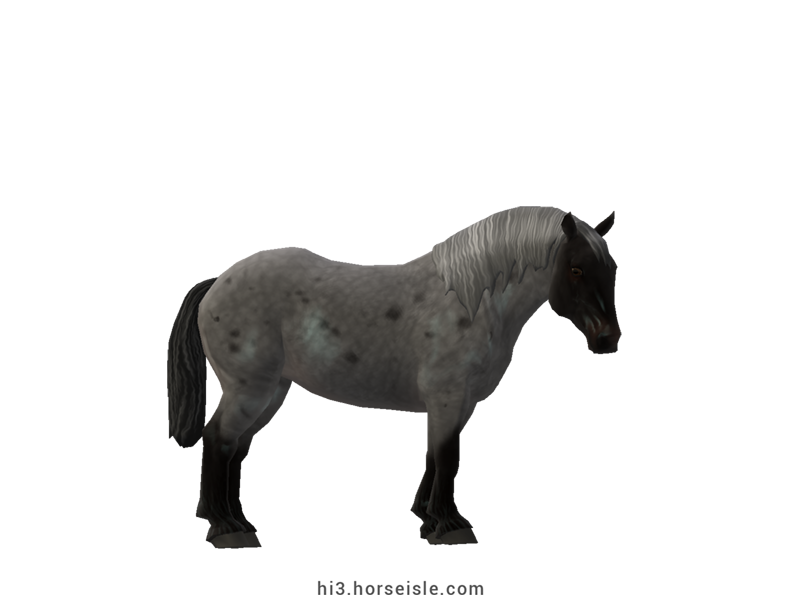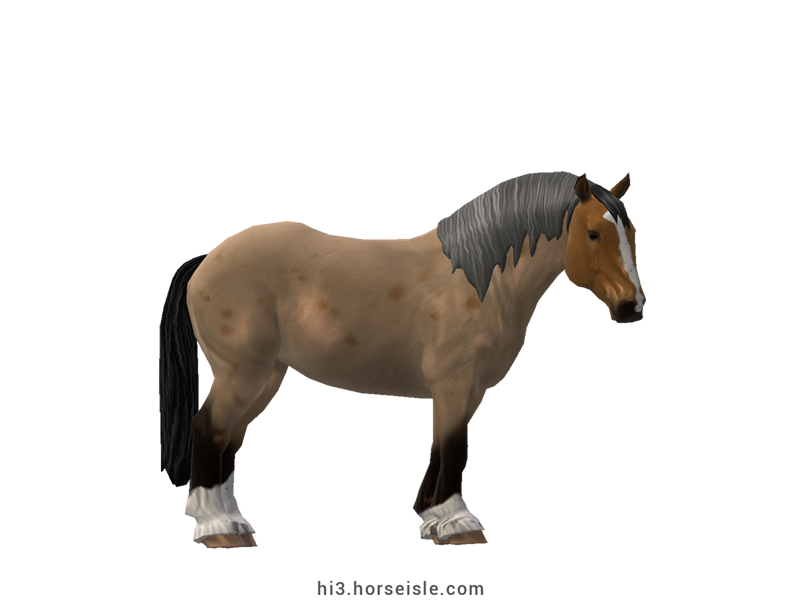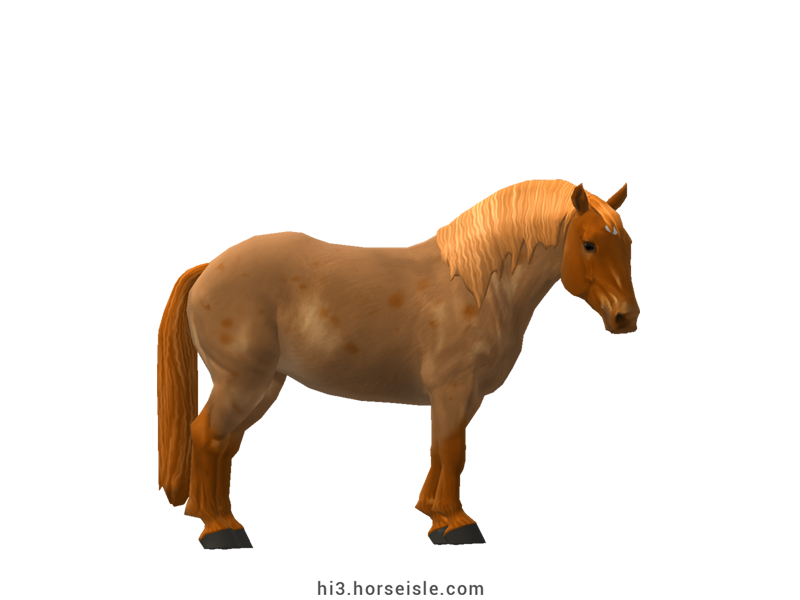Our Massive Real World Equine Reference!
[ INDEX ] Equine Type: Horse Breed: Hungarian Coldblood [ PREV ] [ NEXT ]
History and development:
The story of the Hungarian Coldblood is tied with the story of another Hungarian draft breed called Murakoz.
In the 19th century, Hungarian breeders imported heavy drafts, primarily Norikers, from nearby Austria to Hungary, in order to develop a local draft breed. They crossed these heavy drafts with local horses, and created two types of draft breeds: the first, which was large and heavy, was called Pinkafo, and the second, which was smaller and lighter, was called Murakoz.
By the beginning of the 20th century, both types became fully established and popular in Hungary, and especially the Murakoz, which comprised about 20% of the horse population.
That changed during World War II, when most of Hungary's draft horses were lost. This led to a shortage of draft horses in Hungary, which then led Hungarian breeders to import various heavy drafts, mostly Ardennais and Brabant, and cross them with their leftover stock.
These crosses resulted in the Hungarian Coldblood, which was bred for its strength and was used on farms. It was officially recognized in 1954.
The Hungarian Coldblood vs. the Murakoz:
Not all Murakoz horses were crossed with outside blood. Some were kept pure, and during the 1960s, when the need for heavy farm horses declined, they were bred to be lighter and more agile than the Hungarian Coldblood. This difference between the two breeds led to their official separation in 1972.
The Hungarian Coldblood today:
Today, there are a few hundred Hungarian Coldbloods in Hungary, where they are used for farm and harness work.
Breeding:
In general, Hungarian Coldbloods can be crossed with Percheron, Brabant, and Ardennais horses. However, there is a limit to how much foreign blood a Hungarian Coldblood can have, and therefore, in Horse Isle, this breed has a closed studbook.
Conformation:
The conformation of Hungarian Coldbloods is characterized by a straight or slightly convex profile, a muzzle that can be long, a high-set neck which is slightly arched, heavily crested, and can be of medium length. The legs are short, the girth is deep, the croup is very sloped, and the body is muscular and wide.
The mane and tail are always wavy and thick, and the mane is expected to be of sufficient length.
Performance metrics:
The following are the: range, average, (SD), and MOE of performance metrics of ordered Hungarian Coldbloods in Horse Isle (not bred ones). In rare cases,
Speed: 13.2-14.7, 14.1 (0.3), 0.06.
Sprint: 29-44, 35 (3), 0.65.
Accel: 0.62-0.88, 0.75 (0.05), 0.01.
Decel: 1.00-1.18, 1.09 (0.04), 0.01.
Jump: 4.54-4.84, 4.70 (0.07), 0.01.
Pull: 3.61-4.69, 4.19 (0.24), 0.05.
Turning: 41.43-56.09, 48.63 (2.99), 0.59.
Reverse: 1.8-2.6, 2.2 (0.1), 0.03.
Stamina: 53.56-60.49, 57.05 (1.67), 0.33.
Reaction: 0.82-0.91, 0.87 (0.02), 0.00.
Coats & Height:
Colors: usually flaxen chestnut, but also bay, black, brown, and grey.
Additionals: flaxen, roan, sooty, dark mane and tail, grey mane and tail.
Height: 14.3hh to 17.1hh.
[ INDEX ] [ PREV ] [ NEXT ]

